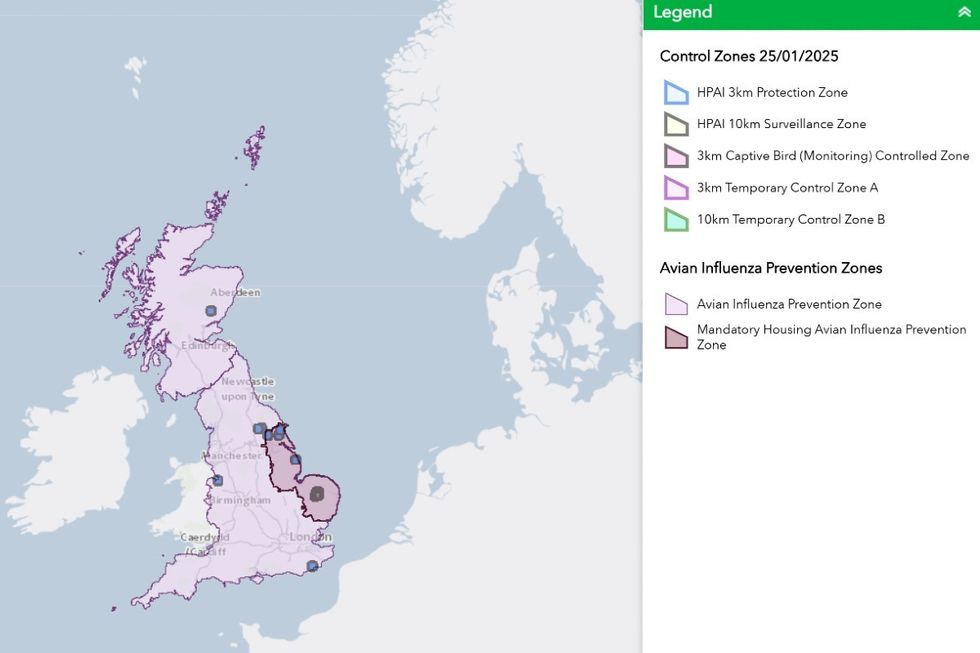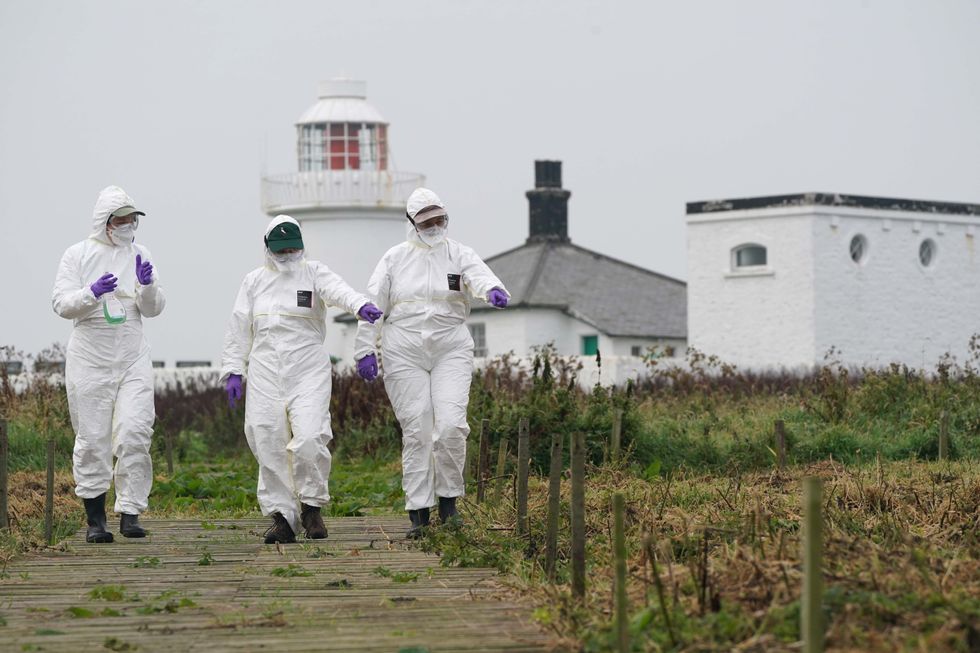Bird flu outbreak in Yorkshire
GB News
All birdkeepers must abide by strict guidelines to mitigate the risk of further infection
Don't Miss
Most Read
Trending on GB News
Mandatory biosecurity measures have come into force across all of England and Scotland after an increased number of bird flu cases in wild and captive birds.
The Deputy Chief Veterinary Officer from Scotland and the Chief Veterinary Officer from England have both declared that a national Avian Influenza Prevention Zone (AIPZ) came into force from midday to decrease any risk of the disease spreading amongst poultry and other captive birds.
The measures mean it will be a legal requirement for all birdkeepers in England and Scotland to abide by strict biosecurity rules to stop any further spreading of the disease.
The measures announced today do not require birdkeepers to enforce mandatory housing of the animals.
However, from midnight on January 27, an AIPZ mandating enhanced biosecurity and housing for kept birds currently in force across East Riding of Yorkshire, City of Kingston Upon Hull, Lincolnshire, Norfolk, Suffolk will be extended to also include the unitary authorities of Shropshire, York and North Yorkshire.

Restrictions will remain in place until further notice and will be regularly reviewed.
Animal and Plant Health Agency
A three-kilometre protection zone has been put in place surrounding infected premises, which requires all birds to be caged.
The extension of the lockdown rules is aimed at reducing any risk of further outbreaks taking place.
UK Chief Veterinary Officer, Christine Middlemiss said: "Given the continued increase in the number of bird flu cases across England, we are taking further action to try and prevent the further spread of disease.
"I urge bird keepers to check which requirements apply to them, to continue to exercise robust biosecurity measures, remain alert for any signs of disease and report suspected disease immediately to the Animal and Plant Health Agency."
The highly pathogenic strain of bird flu - called H5N1 - is currently being spread across wild birds in the UK and stands a "very high" chance of infecting poultry and other captive birds.
LATEST DEVELOPMENTS:
Scotland’s Deputy Chief Vet Officer Jesus Gallego said: "While the risk to public health is very low, we are currently experiencing a heightened risk of an incursion from this virus and so it is vital that appropriate precautions are taken to protect poultry and other captive birds from infection.
"The introduction of this zone is a preventative measure, aimed at minimising the effect that this, often devastating virus, can have on Scottish kept birds."
Experts have confirmed that strict biosecurity measures are the most effective way of protecting birds from the infection.
During the lockdowns, birdkeepers with more than 500 birds will have to limit the number of "non-essential" people on their land and their workers will have to put on fresh clothing and footwear before they access bird enclosures.

Workers will have to put on fresh clothing and footwear before they access bird enclosures (Stock)
PA
Any vehicles accessing the land must be cleansed and disinfected on a regular basis to mitigate the risk of further spreading.
Additionally, backyard owners with smaller groups of poultry such as chickens, ducks and geese are also required to do the same.
Birdkeepers are advised to consult the interactive map to check if their area is impacted and read the full guidelines of the lockdown.
Such restrictions will remain in place until further notice and will be regularly reviewed by Government authorities.
Public Health Scotland has issued advice, explaining that the risk to public health from the virus is very low, while Food Standards Scotland advises that avian influenzas pose a very low food safety risk for consumers.
They have confirmed that poultry and their products - such as eggs - are safe to consume.







